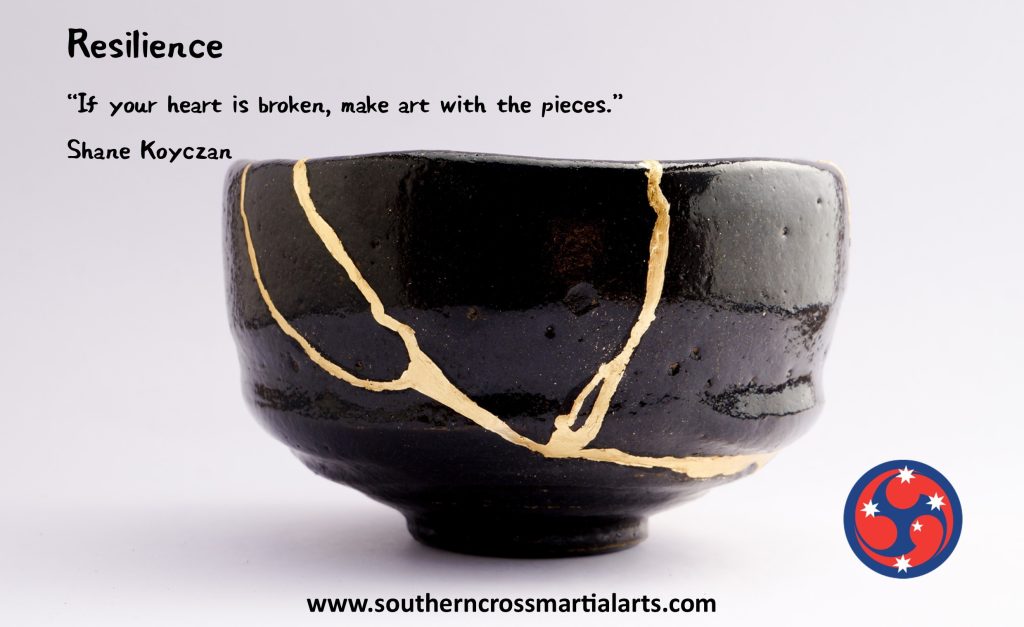
You quite often see martial arts schools advertising that they teach ‘resilience’ but many can’t really explain how they do so. In reality it’s more of a by-product of the journey and the training, rather than a specific goal. In short martial arts training can help build resilience in several ways:
- Physical Resilience: Martial arts training involves rigorous physical activities that challenge your body’s limits. Through consistent training, you gradually build strength, endurance, flexibility, and overall physical resilience. Regular practice pushes you to overcome physical obstacles, endure discomfort, and persevere in the face of physical challenges, thereby enhancing your overall resilience.
- Mental Resilience: Martial arts training requires discipline, focus, and mental fortitude. It helps develop concentration, self-control, and the ability to remain calm under pressure. You learn to manage stress, control your emotions, and make clear decisions in challenging situations. These mental skills cultivated in martial arts can be transferred to other areas of life, helping you face adversity with resilience.
- Emotional Resilience: Martial arts training often involves controlled sparring and competitive situations. Through these experiences, you learn to cope with setbacks, defeat, and criticism. Martial arts teach you to embrace failure as a learning opportunity, to get back up after being knocked down, and to develop a resilient mindset. You become more emotionally resilient, capable of bouncing back from disappointments and setbacks.
- Self-Confidence and Self-Esteem: Martial arts training builds self-confidence and self-esteem, which are essential components of resilience. As you progress in your training, you achieve goals, master new skills, and earn belt ranks or other forms of recognition. This sense of accomplishment boosts your confidence and belief in your abilities, enabling you to face challenges with greater resilience.
- Adaptability and Problem-Solving: Martial arts training exposes you to various techniques, styles, and training partners with different strengths and weaknesses. This diversity helps develop adaptability and problem-solving skills. You learn to analyze situations, adapt your strategies, and find creative solutions to overcome obstacles. The ability to adapt and think on your feet enhances your resilience, both in martial arts and in life.
- Perseverance and Determination: Martial arts training requires consistent effort, dedication, and practice over a long period. You face numerous difficulties and obstacles along the way, but through perseverance and determination, you continue to progress. This mindset of not giving up in the face of challenges becomes ingrained in your character and enhances your overall resilience.
It’s important to note that the extent of resilience-building in martial arts can vary based on individual training methods, instructor guidance, and personal commitment. It’s a joint effort as many of the inciental activities that enable you to practice resilience means you have failed at sometyhing – be it a block during sparring, or a pushup or whatever – it’s the practice of recovering, growing and adapting that results in resilience.
A good teacher in a good school has a curriculum with built in opportunities to practice recovery from failure and provides adequate and appropriate support for the individual student to work through it.
So, martial arts provide a structured environment that fosters the development of physical, mental, and emotional resilience.